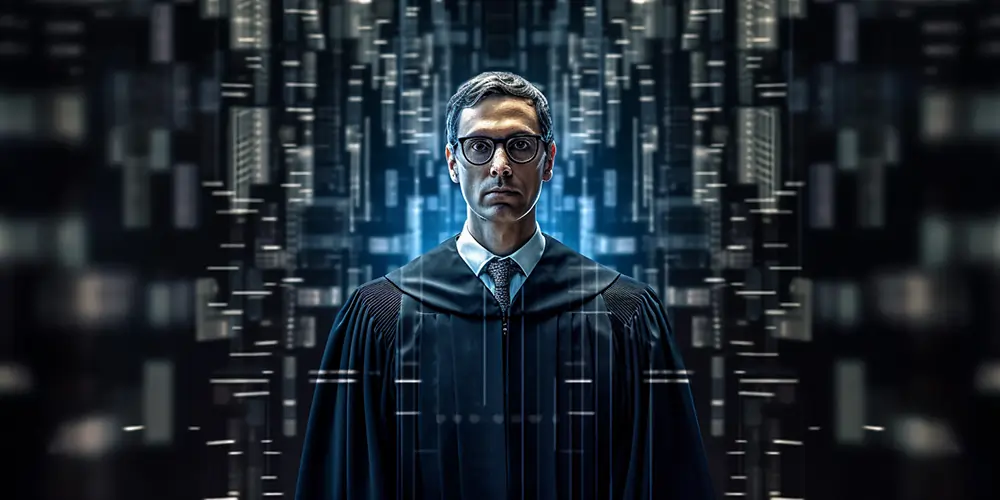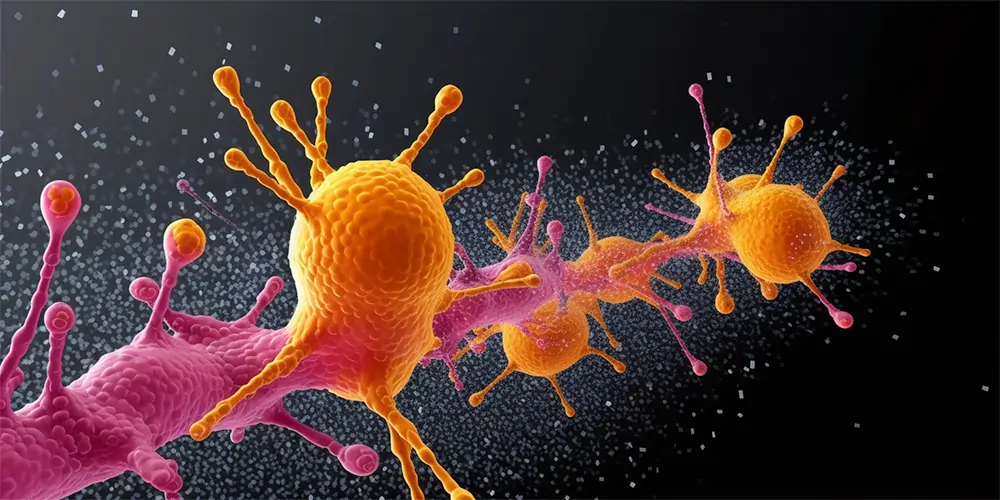AI in the Courtroom
AI is revolutionising various facets of our society, with the legal system not being an exception.
Could AI replace human judges and jurors, bringing a new level of impartiality and consistency to the justice process?
This thought-provoking prospect bears an interesting mixture of potential benefits and challenges.
AI systems, known for their impartiality and consistency in decision-making, could possibly iron out the perceived wrinkles in the human judicial system.
These automated entities can sift through vast amounts of information and interpret laws and evidence in record time. But when it comes to understanding the nuances of human behaviour, emotions, and context, AI may stumble.
Legal decision-making extends beyond mere logical reasoning, stepping into the territory of ethics, morality, and diverse perspectives of life – areas where AI currently lacks expertise.
The Human Touch: Judge and Jury
The concept of justice is intrinsically linked with human experiences. It’s a complex brew that marries law, ethics, societal norms, and often, personal empathy.
This brings us to a significant concern raised regarding human judges – the potential for bias. As one might argue, fairness in court proceedings can be influenced by the judge’s personal convictions, creating an uneven playing field for different defendants.
“Isn’t fairness, moral, and ethical considerations bias thinking from the judge?” one might ask. “A criminal may get lucky with a compassionate judge, while others may not. How is this fair?”
Bias in the Courtroom
Indeed, bias – whether it lurks in the conscious or unconscious realms – has persistently posed challenges to the judicial system. However, rest assured that measures to tackle these biases are not only recognised but are also being diligently pursued.
Training programs for judges, guidelines for decision-making, and technology-assisted analysis of potential biases are steps taken in this direction.
However, it is essential to recognise that fairness, with its many aspects, cannot simply be distilled down to consistency alone.
The intricate nuances of human behaviour and context, that influence legal decisions, are still beyond the comprehensive understanding of AI systems.
Striking a balance between human judgment and AI assistance might be a more promising approach. AI, as a tool to augment decision-making, can be paired with the human capacity for ethical reasoning and broader contextual understanding.
Bias in AI: A Double-edged Sword?
While the potential of AI to significantly curtail bias in legal decision-making via data-driven algorithms is undeniable, it’s crucial to bear in mind that these systems do not naturally possess an immunity to bias.
“AI systems can inadvertently perpetuate or amplify existing biases if they are trained on biased data,” warns an expert. “To effectively use AI in the legal system, it requires meticulous attention to data quality, algorithmic transparency, and ongoing evaluation to detect and rectify any biases that may emerge.”
The Future of AI in Legal Decision-making
In the quest for impartial justice, AI can be a powerful ally.
It holds promise in contributing to more objective decision-making. However, we need to exercise caution in its implementation, ensuring diverse, representative data sets are used and their decision-making processes are thoroughly audited.
To harness the true potential of AI in legal proceedings, the optimal solution appears to be a balanced collaboration of human judgment and AI assistance.
Human oversight, coupled with AI’s ability to reduce potential bias, can help create a more robust and fair legal system, ensuring justice that is not only served but also perceived to be served.




